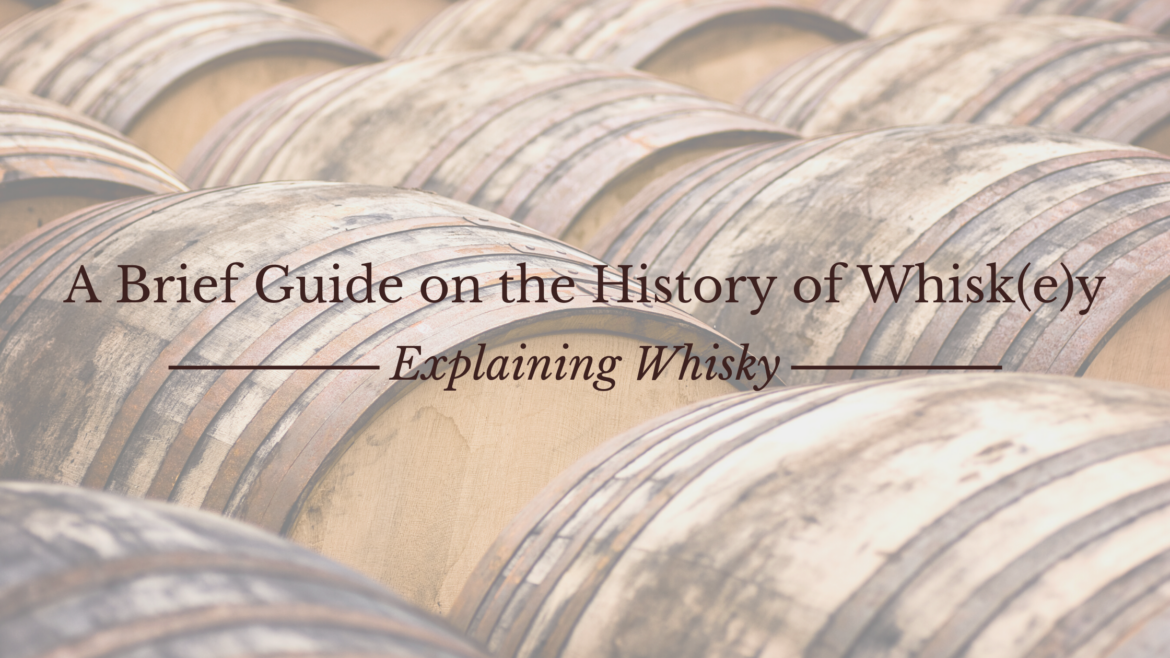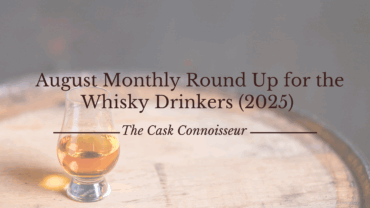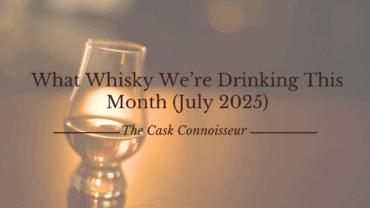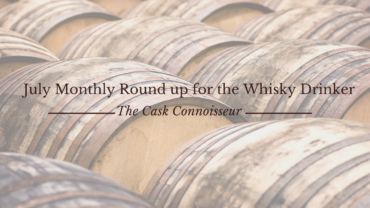Whisky has often been referred to as the “nectar of the gods”, but the origin of whisky production has often been forgotten. But to truly enjoy whisky, knowing its history and the different types of whisky can be a big help.
The earliest reference to whisky dates back to the late 1400s, but it’s been around for centuries in Scotland and Ireland. Whilst both countries might argue that they created it first, there is no solid proof for either, although it is thought that Irish monks brought distilling techniques from Ireland to Scotland. What we do know though, is that back then it was distilled from barley, wheat and rye and this was only the start of whisky production, as it became increasingly popular by the 16th century.
What is the difference between “whisky” and “whiskey”?
There is a lot of confusion for people who have just started their whisky journey and that all comes down to the spelling of the word. Whilst different regions in the world developed their own unique type of whisky, they also decided to confuse everyone by disagreeing on the correct spelling.
The short answer is that whisk(e)y refers to grain spirits distilled in Ireland and the United States. Whilst whisky (with no ‘e’) refers to Scottish, Canadian or Japanese grain spirits. The difference between the two terms is largely semantic. While they both refer to the same spirit, the spelling of the term is determined by the country of origin.
Whichever spelling though, the origin of the word clearly goes back to both Ireland and Scotland and comes from the term ‘Uisge beatha’ or ‘usquebaugh’ which is Gaelic for “water of life”. It was translated from the Latin aqua vitae, used to describe spirits. So despite the different spellings, they all come from the same term.
How is whisky made?
Whisky is made through a process of distilling fermented grain mash. This is made by combining malted barley, wheat, rye, or other grain with hot water and fermenting it with yeast. This then produces alcohol, which is distilled in order to concentrate the alcohol content.
The distilled alcohol is aged in either a bourbon, sherry; port, rum; or a wine cask, which helps to develop the complex flavours and aromas of the whisky. The time required for the ageing process will vary between spirits. For example, Scotch whisky must age for at least three years, whilst American whisk(e)y only needs two.
Many premium whiskies will need to be left for much longer in the ageing process. But once the whisky has been aged to the desired flavour profile, it is bottled and ready to be enjoyed. This is a process that has been around for centuries and for many, is one of the finest drinks that many can have.
What are the different types of whisky?
1. Single Malt Whisky is made from malted barley and distilled in one single distillery
2. Blended Whisky is made from a blend of two or more grain whiskies, usually from different distilleries, and sometimes from other spirits, including neutral grain spirits.
3. Irish Whiskey is made in Ireland from a mash of malted and unmalted barley.
4. Rye Whiskey is made from a mash of at least 51% rye.
5. Bourbon Whiskey is made in the United States from a mash of at least 51% corn.
6. Scotch Whisky is made in Scotland from a mash of malted barley.
7. Japanese Whisky is made in Japan from a mash of malted and unmalted grain.
8. Canadian Whisky is made in Canada from a mash of corn, rye, wheat and barley.
9. Tennessee Whiskey is made in Tennessee from a mash of at least 51% corn.
10. Corn Whiskey is made from a mash of at least 80% corn.
Chris Walster, Whisky Connoisseur further comments…
“Whilst we can agree that whisky is a popular alcoholic beverage that is enjoyed for its flavour and aroma, the huge number of styles can be daunting. Reading the bottle label for what cask it was matured in, the nose, palate and aroma will provide guidance. If it sounds like you’ll enjoy it, you probably will. Exploring whiskies’ rich tapestry and history is part of its appeal. Drinking something that goes back centuries can make history feel alive. People may drink whisky for its taste, its social aspect, or simply as a means to relax, but no matter people’s reasons, it’s easy to agree that this is one special drink.”






2Comments
March 12, 2023 at 11:08 am
March 22, 2023 at 5:02 pm